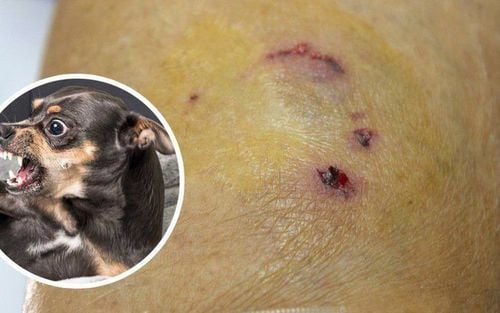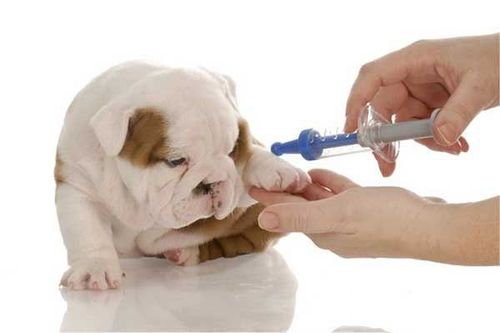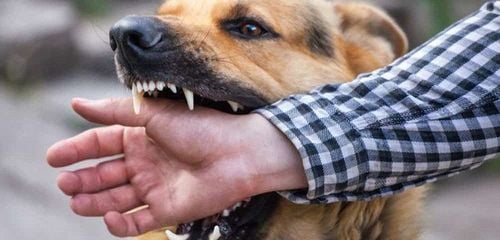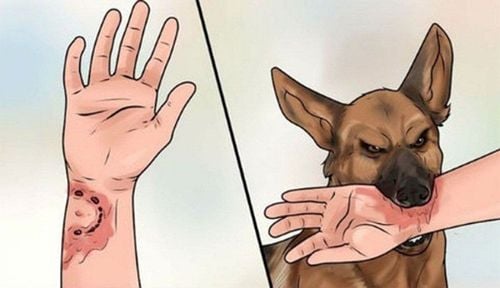This is an automatically translated article.
The article was professionally consulted by Master, Doctor Nguyen Thi Nhat - Infectious Disease Specialist - Department of Medical Examination & Internal Medicine - Vinmec Hai Phong International General HospitalMany people mistakenly believe that only when bitten by a rabid dog will they get rabies. In fact, rabies can also be transmitted from the saliva of an infected animal through a scratch or lick on an open wound or abrasion of a person.
1. Is rabies contagious?
Rabies is caused by Lyssavirus, which belongs to the family Lyssaviridae. After entering the body of humans and mammals, the virus travels through the nervous system into the spinal cord and brain, destroying nerve centers in the brain, causing a state of madness in animals and humans.
Rabies is a life-threatening disease and can be fatal if the person bitten does not clean the wound and get prompt medical treatment. There is no medicine to treat rabies attacks, prevention by vaccination against rabies. Rabies usually increases in the summer.
Rabies is caused by a virus and is a contagious disease. Therefore, the prevention of rabies is extremely necessary.
2. How is rabies transmitted?
The rabies virus is mainly transmitted from the saliva of rabid animals to humans through bites or scratches on the human body.
96% of human rabies cases in Southeast Asia are due to dog bites. The closer the dog bite site is to the central nervous system, the faster the victim will develop the disease.

Worldwide, airborne transmission can occur in bat burrows or in contact with bat waste, this airborne transmission has been reported in 4 cases of rabies in the United States. humans and in connection with experimental work with animals. However, cases of this type have not been recorded in Vietnam.
Factors that can influence the development of rabies infection include:
Type of contact and type of animal bite Severity of bite The amount of rabies virus entering the body Immunity status Bitten area patients - wounds to the head and neck, as well as those in nerve ending areas such as fingers, typically have a shorter incubation period due to the closer distance the virus enters nerve tissue .
3. If bitten by an animal that has been vaccinated against rabies, do I need a rabies vaccine?
Many people believe that, if bitten by a rabies vaccinated dog, there is no need to get vaccinated against rabies.
If the dog has been properly vaccinated against rabies and the effectiveness of the vaccine has been confirmed by the laboratory, the effectiveness is extremely high, helping the animal to prevent rabies. In reality, however, there are many possible confounding factors.

4. Is rabies contagious from person to person?
Humans are mammals, so human-to-human transmission is theoretically possible. However, in fact, there was no recorded case of human-to-human transmission by normal routes.
Professional butchers may be at risk of infection when killing animals with rabies and handling infected brain or other parts, however there have been no cases of human transmission of the disease from eating raw meat. cooked.
Human-to-human transmission of rabies through corneal or other organ transplantation is relatively rare but still possible. This transmission has occurred in corneal transplant recipients and has recently occurred in some cases of transplant recipients of solid organs and vascular tissue. Therefore, corneas or human organs should not be taken from patients who have died of encephalitis or any other neurological disease that has not been clearly diagnosed.
Please dial HOTLINE for more information or register for an appointment HERE. Download MyVinmec app to make appointments faster and to manage your bookings easily.














